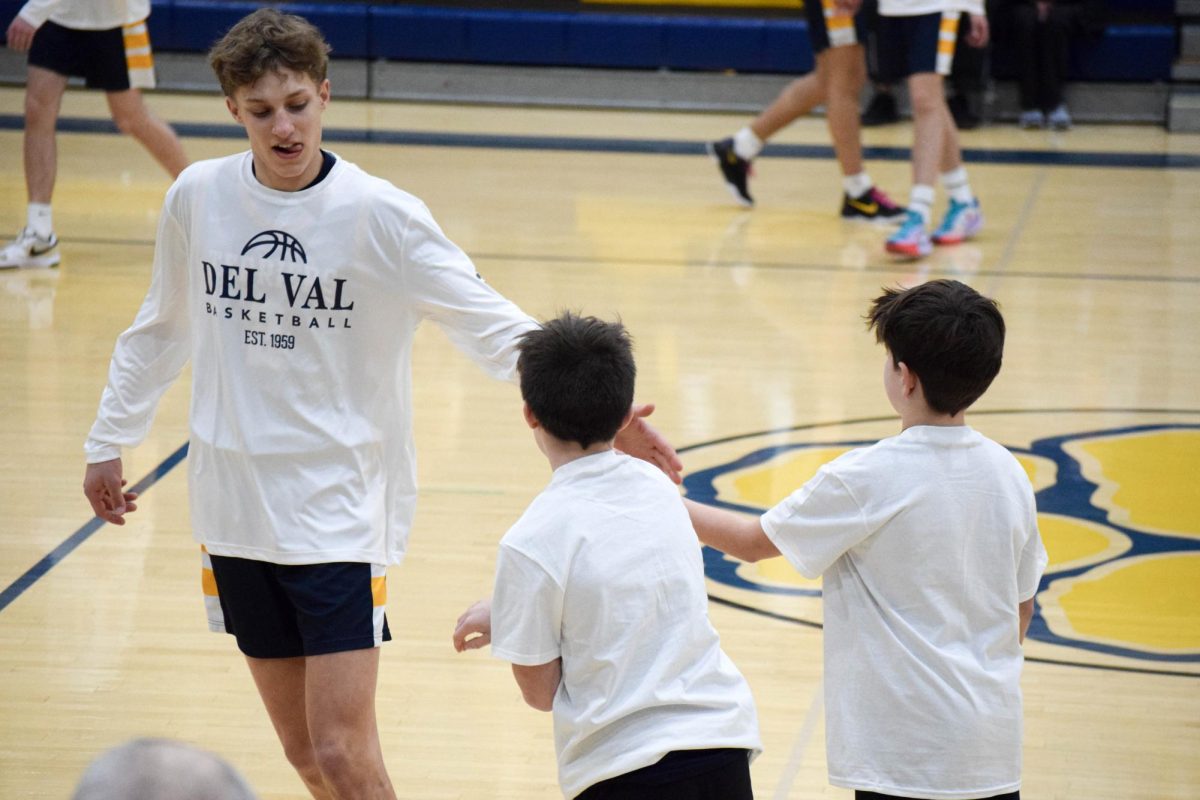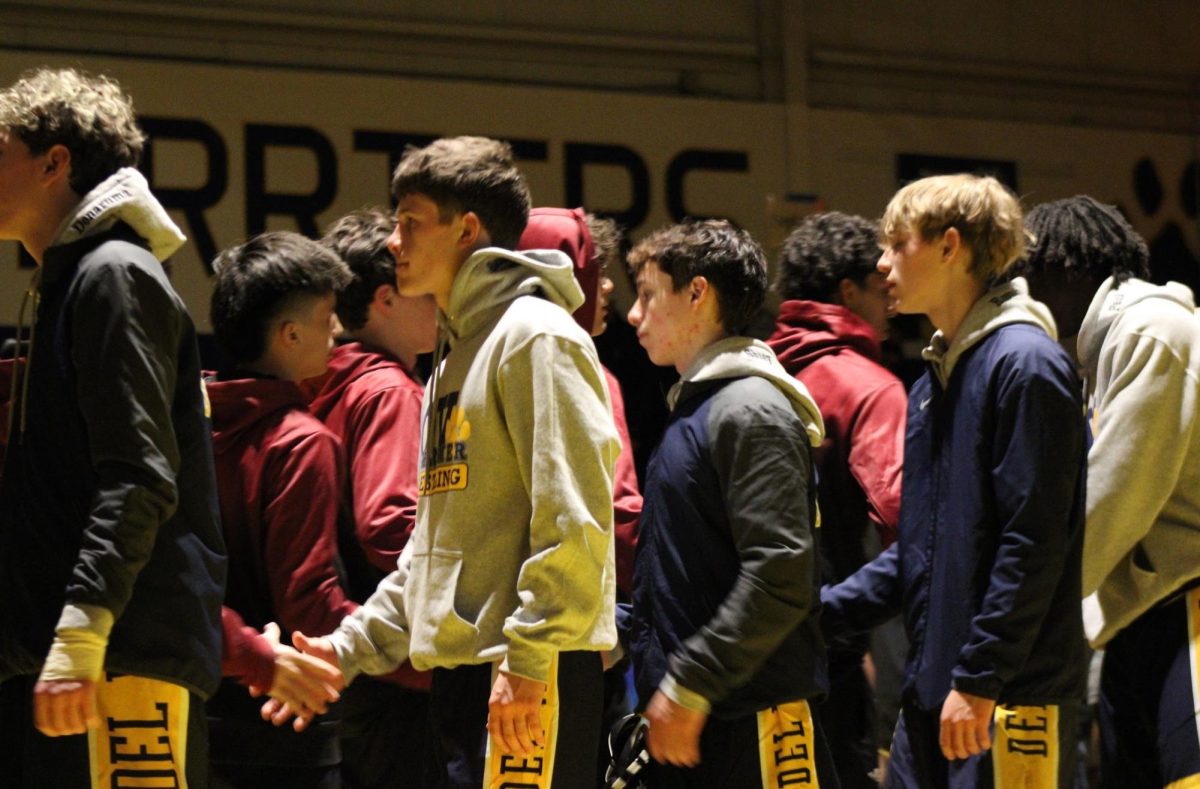-
If you’ve ever gone to a volleyball game or you watched volleyball this past summer in the Olympics, you’ve probably noticed that teams always seem to have one player wearing a different color jersey. This person is called the libero. The pronunciation varies regionally but lih-BƐR-o is commonly used in New Jersey (Photo via Dawn Aycock).

-
When “The Delphi” asked Del Val’s varsity libero Brooklyn Liskowacki how often she gets questions about why she’s wearing a different color, she confirmed that it happens all the time. “Even my dad has asked me,” said Liskowacki. “He’d be like, ‘What does that mean when they wear the different jersey?’” (Photo via Dawn Aycock)

-
Liberos have their own additional set of rules, and the different colored jersey makes it easier for the officials to keep track of them. For one, they are only allowed to play in the back row. Because of this, coaches will typically choose their best passer to be their libero (Photo via Dawn Aycock).
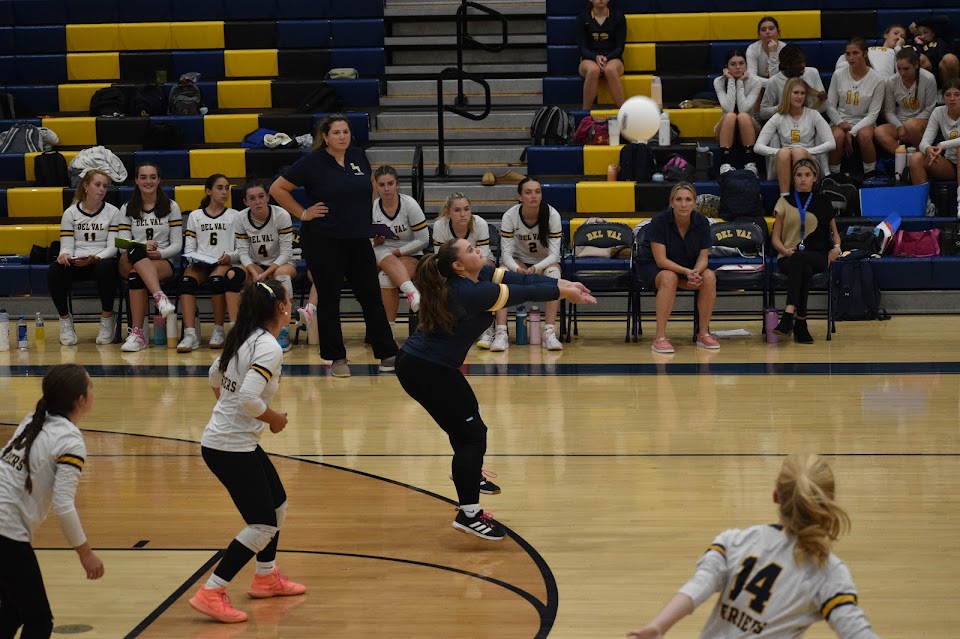
-
Also because of this, coaches will instruct their players to not hit at the opposing team’s libero. “I feel like people avoid me now,” said Liskowacki, “I feel like ever since I put it [the libero jersey] on, I got the ball less… it’s like a repellent.” (Photo via Dawn Aycock)
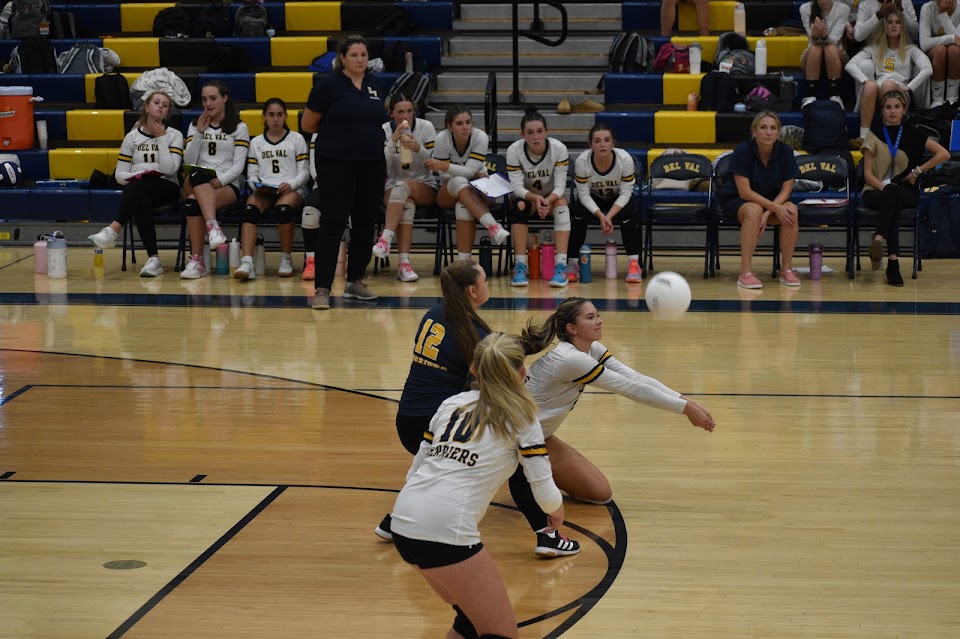
-
Liberos aren’t allowed to contact the ball on an attack over the plane of the net. This can be hard to judge, so most referees gauge it on whether or not the player’s feet left the ground. Since liberos don’t ever block and rarely attack, they tend to be one of the shorter players on the team (Photo via Jessica Ziemba).

-
“My personal interest and my family’s interest in the libero came up during the Olympics when we were watching it,” media specialist Tracy Miceli said. “We are all very short… I’m only five foot. My daughters were just really interested to see how there were all these really tall volleyball players and then there was like a shorter volleyball player, and they were still killing it and doing all the things.” (Photo via Dawn Aycock)
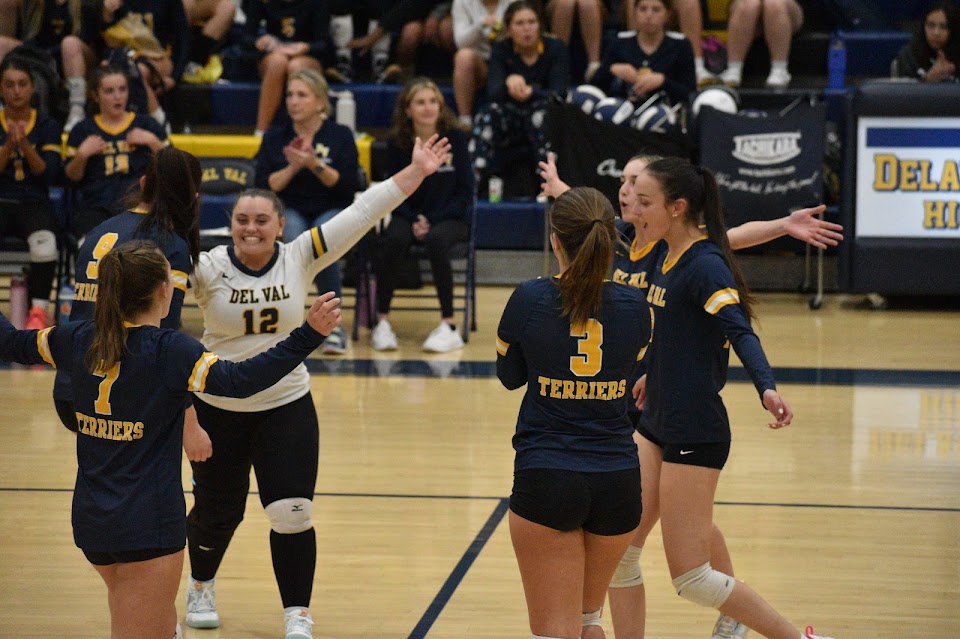
-
A libero substitution doesn’t count towards the team’s total allowed subs. They are free to enter and exit the court as many times as they’d like. Unlike traditional substitutions, these special libero subs happen behind the attack line and don’t require any referee notification (Photo via Dawn Aycock).

-
Liberos are also allowed to serve for one rotation just like other players. However, once they serve for one person they cannot also serve for someone else (Photo via Jessica Ziemba).
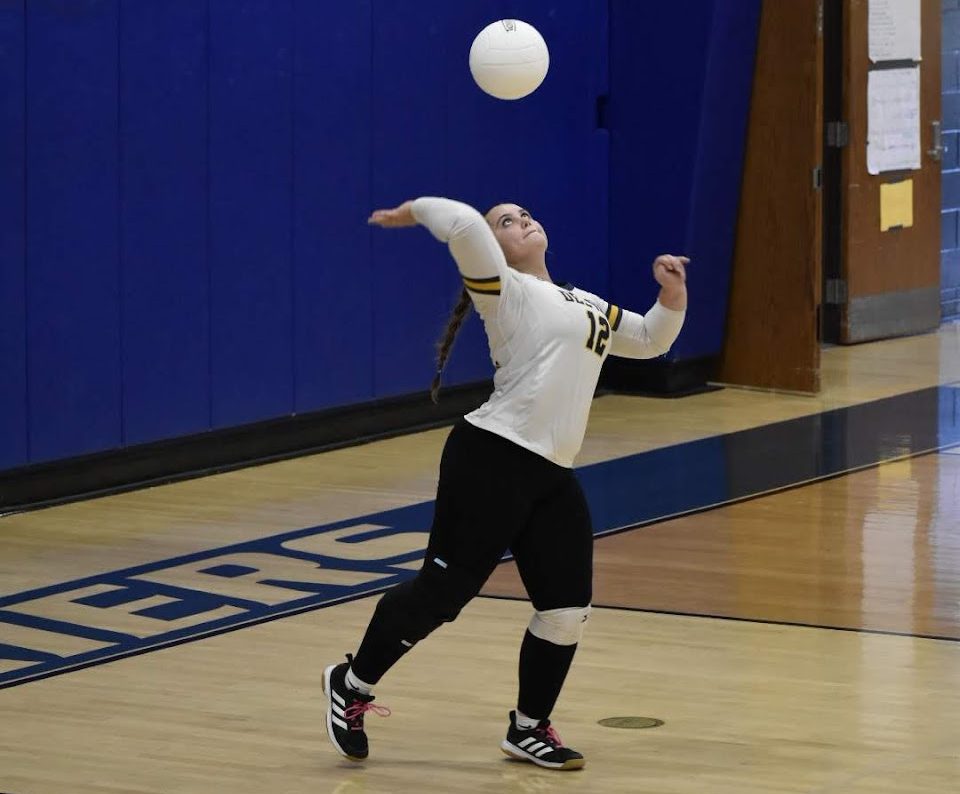
-
Most teams make their libero their back up setter in the event that they end up out of system. In volleyball, out of system means that the second touch has to be made by someone other than the setter (Photo via Dawn Aycock).

-
Liskowacki shared that she conveniently has setter experience. “I don’t even really know how that [becoming a libero] happened,” Liskowacki said. “I started as a setter and then I switched to back row because I had a good platform.” (Photo via Dawn Aycock)
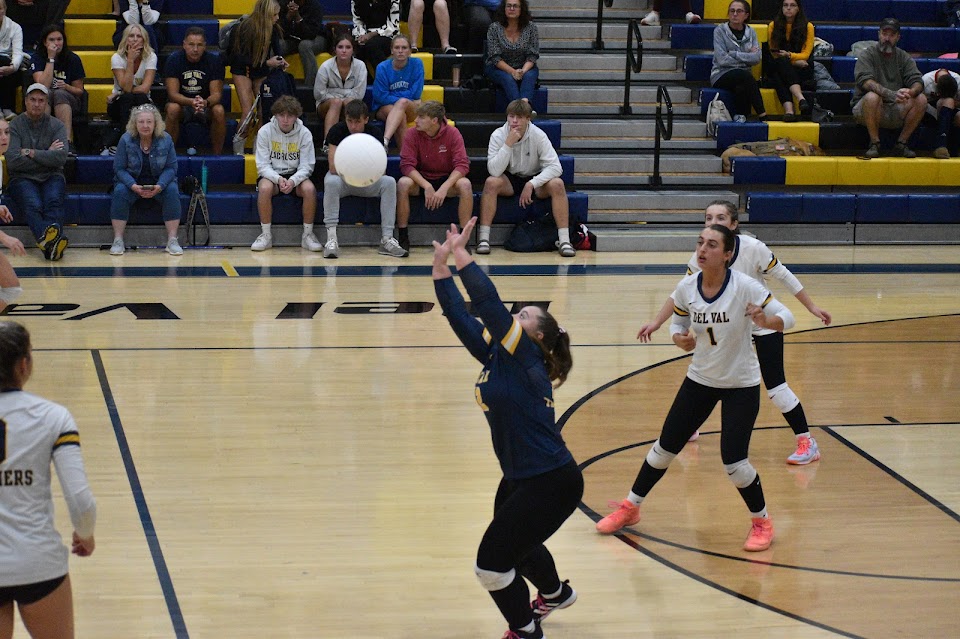
-
Liskowacki is also a varsity softball player. She highlighted one of her favorite differences between the two games. “[I like] that you get so many chances,” Liskowacki said. “In softball, sometimes you’ll only get the ball once, but in volleyball, you know you’re going to touch the ball at least five times no matter where you are on the court.” (Photo via Jessica Ziemba)
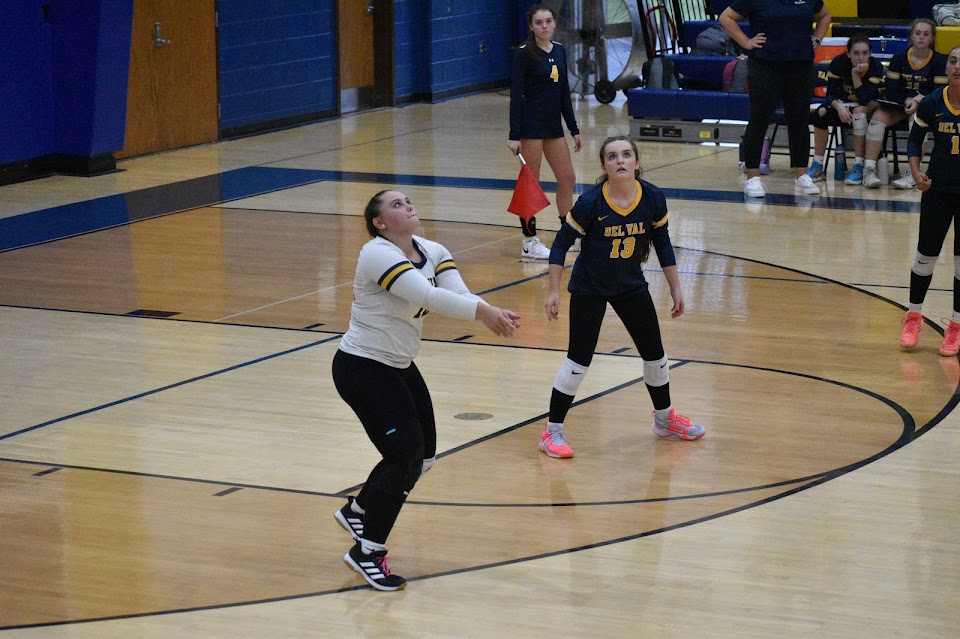
-
Liskowacki’s volleyball mindset is centered around having faith in herself. She’s “getting the ball” and “getting it up, right to Maggie.” She encourages all players to share this positive mentality (Photo via Dawn Aycock).
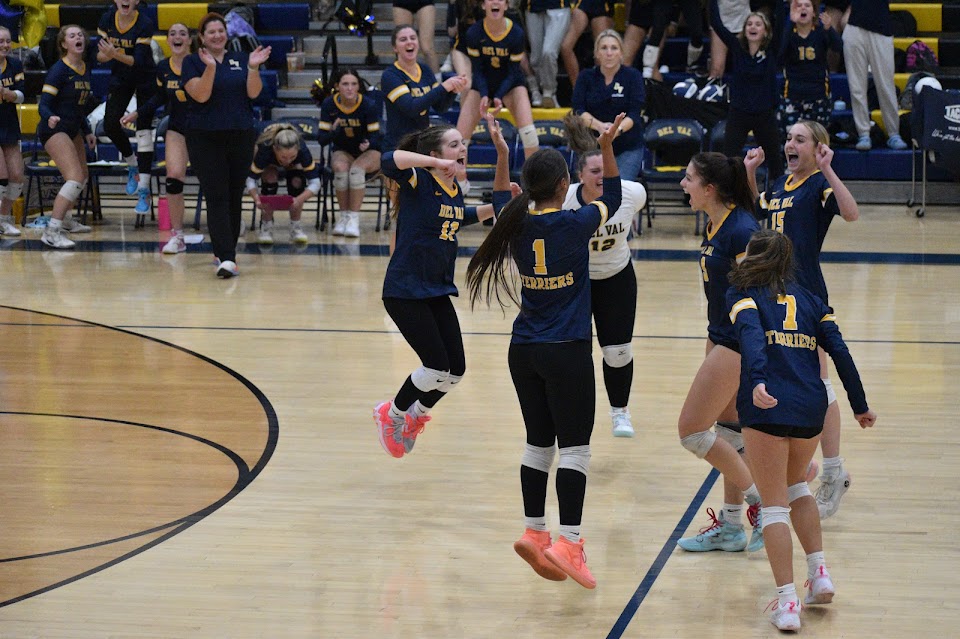
-
“Be confident because a lot of times people can get in their heads,” Liskowacki said. “That can cause them to have bad games, so if you just stay positive, I feel like that can really help.” (Photo via Dawn Aycock).


What is a libero?
Volleyball teams’ backbone athlete
October 30, 2024
Categories:
Tags:
Donate to The Delphi
$445
$2000
Contributed
Our Goal
Your donation will support the student journalists of Delaware Valley Regional High School. Your contribution will allow us to attend conventions, purchase equipment and cover our annual website hosting costs.
About the Contributor

Emma Haig, Executive Editor
Emma Haig is a junior at Del Val, and this is her third year working on The Delphi. In her free time, Emma enjoys playing tennis, taking her dog Stewie Bob on walks and going shopping. Before she was a student at Del Val, she attended Kingwood Township School.


















